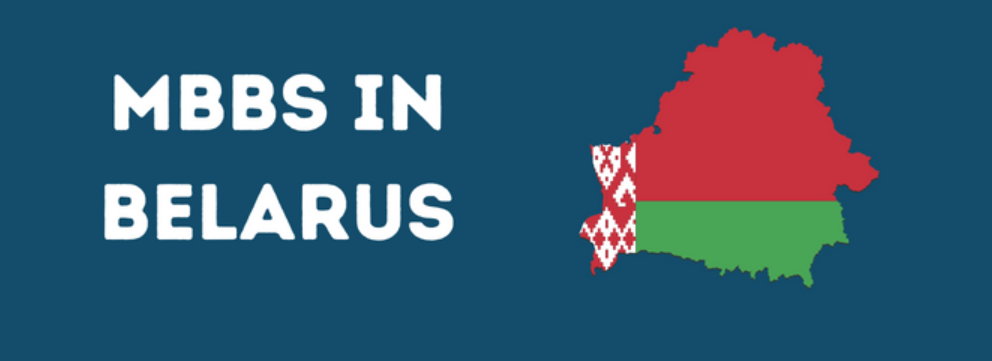When considering pursuing a medical degree abroad, one of the options that often comes up is studying MBBS in Belarus. With its affordable tuition fees and reputed medical universities like Vitebsk State Medical University and Grodno State Medical University, Belarus can seem like an attractive destination for aspiring doctors. However, before making a decision, it’s essential to weigh the pros and cons. In this blog post, we will specifically focus on the disadvantages of studying MBBS in Belarus in 2024.
Language Barrier and Cultural Adjustment
Moving to Belarus to study MBBS can bring a big challenge – understanding and speaking Russian or Belarusian. Most classes and books might be in these languages, and you’ll need them to talk to patients too. If you’re not familiar with these languages, it could be tough to keep up with your studies and make connections.
Also, getting used to a new country’s culture and lifestyle can be hard. This change can make some students feel lonely or miss home.
Climate Challenges for International Students
For students coming from warmer parts of the world, the Belarusian winter can be a tough nut to crack. Imagine stepping out into a world where the air bites with cold, and snow blankets everything you see. In Belarus, winters are not just cold; they are long, often stretching from November to March, with temperatures frequently dropping below freezing. This drastic change in weather can affect not just how you dress but also your mood and health.
Students might find themselves longing for the warmth of the sun, as the gray skies and short days can lead to feelings of sadness or even seasonal depression. Engaging in outdoor activities, which are crucial for a healthy lifestyle, becomes challenging, limiting your options to stay active and fit during the winter months. Adjusting to this new climate while managing a demanding study schedule can be daunting, requiring resilience and adaptability.
Recognition and Accreditation Concerns
One of the hurdles you might face after studying MBBS in Belarus is the varying levels of recognition and accreditation of its universities. Not all institutions have the stamp of approval from major international medical boards, which could be a stumbling block if you’re looking to work or continue your studies in other countries. This means that before you pack your bags, it’s crucial to do your homework on the university you’re eyeing.
Check if its degrees are acknowledged by the medical councils of the countries where you intend to practice or pursue further education. This step is vital because a degree from a university with limited or no recognition can significantly affect your career path, limiting your opportunities abroad. Being proactive about understanding the accreditation status of your chosen university can save you from potential future challenges in your medical career.
Limited Clinical Exposure in English
One challenge you might not expect when studying MBBS in Belarus is finding enough hands-on training in English. Sure, your textbooks and lectures might be in English, but when it comes to actually working in hospitals or clinics, things change. A lot of the practical training could happen in Russian or Belarusian.
This is a big deal because practicing medicine isn’t just about knowing stuff; it’s about doing. If you’re not fully comfortable with the language, it can be hard to pick up essential skills or understand the nuances of patient care. This language gap might slow down how quickly you learn and could impact your confidence in clinical settings.
Post-Graduation Opportunities and Residency Challenges
After earning an MBBS degree in Belarus, graduates often face hurdles stepping into the next phase of their careers. Many countries have strict guidelines for foreign-educated doctors, including rigorous exams to verify their qualifications. A degree from Belarus may not always align with these requirements, making it challenging for international students to find residency spots or employment opportunities in their home countries or elsewhere.
Additionally, the competition is stiff, particularly when vying for residency positions. Local graduates might have an edge over international students, not only because of their familiarity with the local healthcare system but also due to potential biases or preferences towards candidates educated within the country.
This competitive landscape can make it daunting for Belarusian MBBS graduates to navigate their way through the maze of post-graduation possibilities, compelling them to work harder to prove their competence and secure a place in their desired specialty.
Top MBBS colleges in Belarus
Belarus is home to some noteworthy medical schools that offer valuable education in the field of medicine. Vitebsk State Medical University and Grodno State Medical University stand out for their commitment to delivering quality medical training. These institutions are equipped with modern facilities and a team of experienced professionals dedicated to teaching the next generation of doctors.
The curriculum at these universities is comprehensive, covering a wide range of medical subjects necessary for a successful career in medicine. Students have access to practical learning opportunities, allowing them to apply their theoretical knowledge in real-world scenarios.
These universities strive to create an environment that supports student growth, encouraging them to excel in their studies and future medical careers. For those ready to navigate the challenges of studying abroad, these universities offer a solid foundation in medicine.
Wrapping up
In wrapping up, the journey to earning an MBBS in Belarus comes with a mix of opportunities and challenges. It’s important for students to think about the language and cultural adjustments, ensure their chosen university is widely recognized, and prepare for possible limitations in clinical training in English.
Additionally, future career paths and residency spots may not be straightforward, requiring extra effort to secure. Carefully evaluating these aspects can help in making an informed decision about pursuing a medical degree in Belarus.

